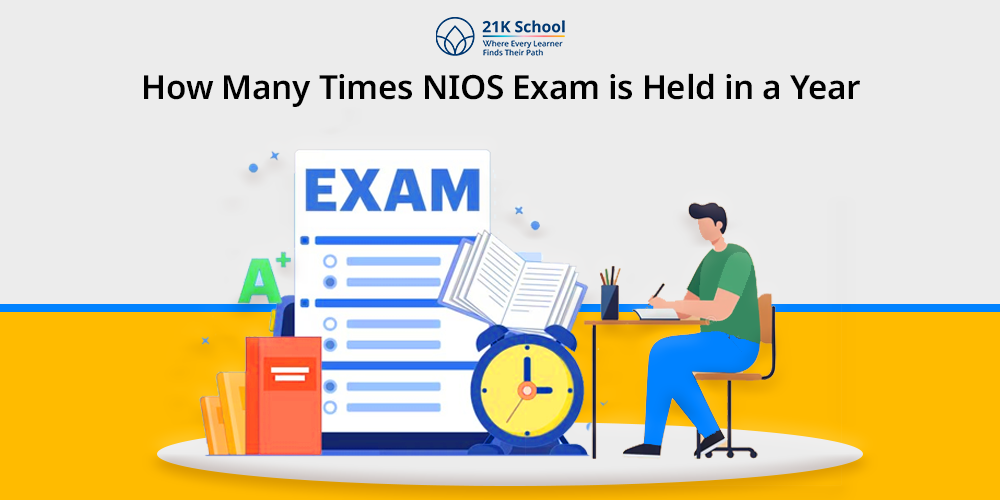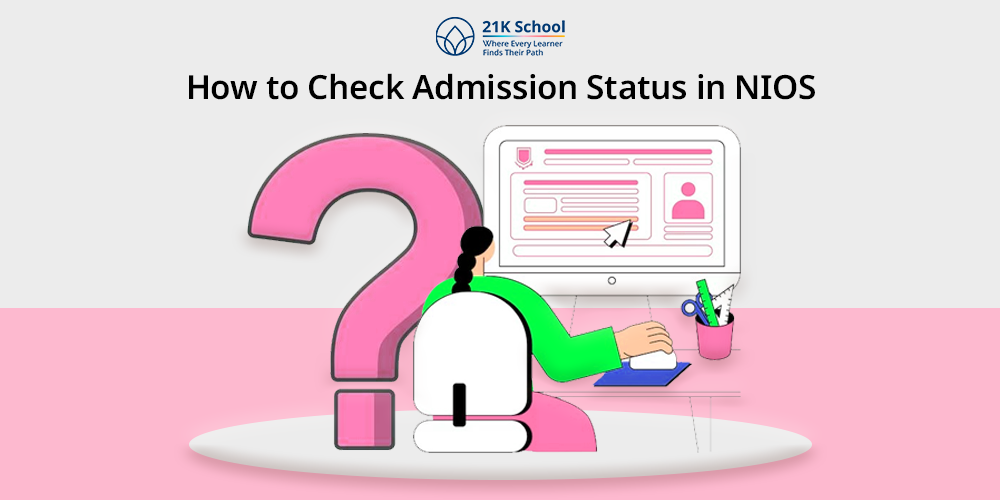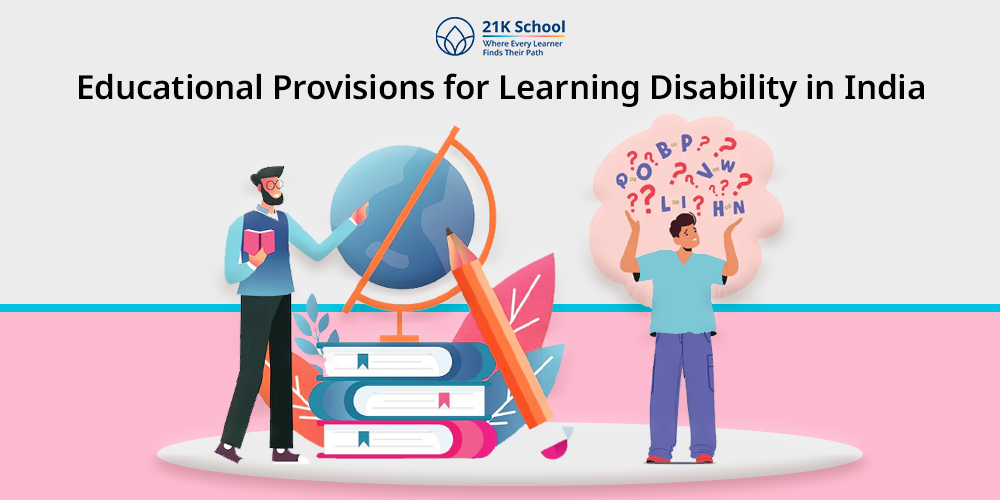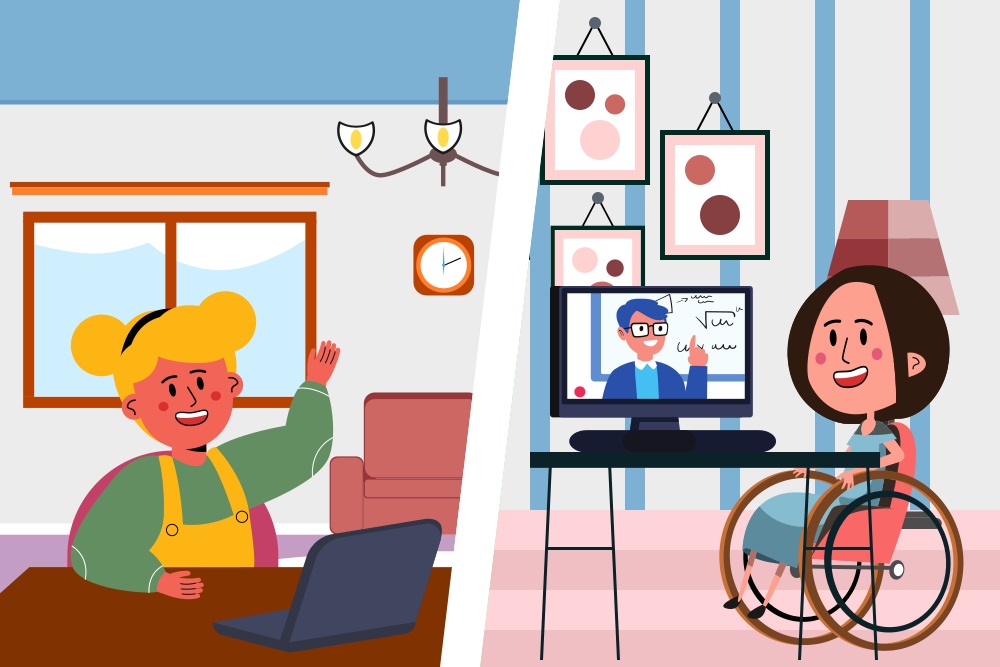
The face of education has undergone tremendous changes in recent times. In the traditional schooling structure, we often find one major choice: government schools versus private schools. Private schools are typically seen as elite institutions that go beyond the basics to hone your child’s talents.
For the promise of a superior educational journey, private education comes at a cost. How justified is the cost of private education, and what alternatives do we have? Let’s look at these in detail. There are several advantages of alternate education.
Contents
Rising Costs of Private Education
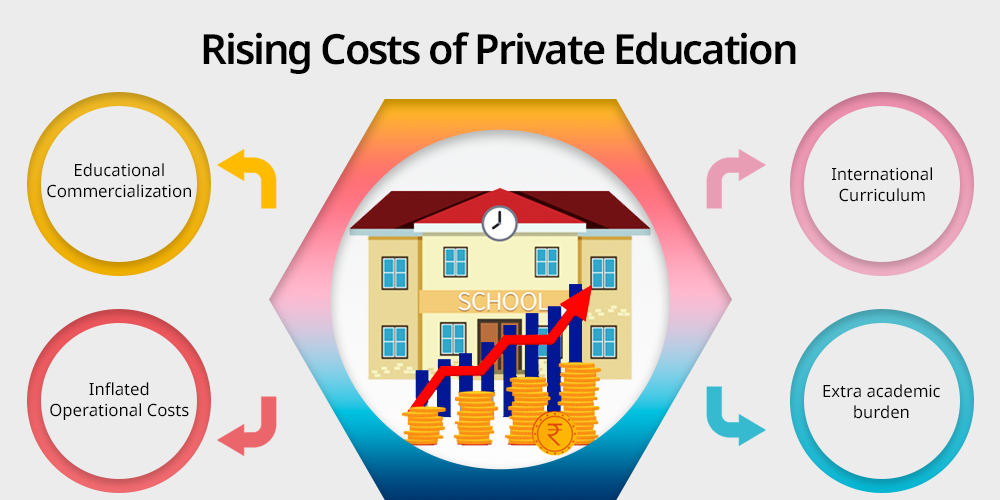
- Educational Commercialization: Private institutions prefer profits over learning due to educational commercialization.
- International Curriculum: The availability of international curriculum like IGCSE or IB makes the private institutions charge high fees from learners.
- Inflated Operational Costs: The modern facilities, faculty salaries, and infrastructure expenses lead to rising costs of education in private institutions.
- Extra Academic Burden: Private institutions charge separately for books, uniforms, transportation, and extracurricular activities.
What is Alternate Education?
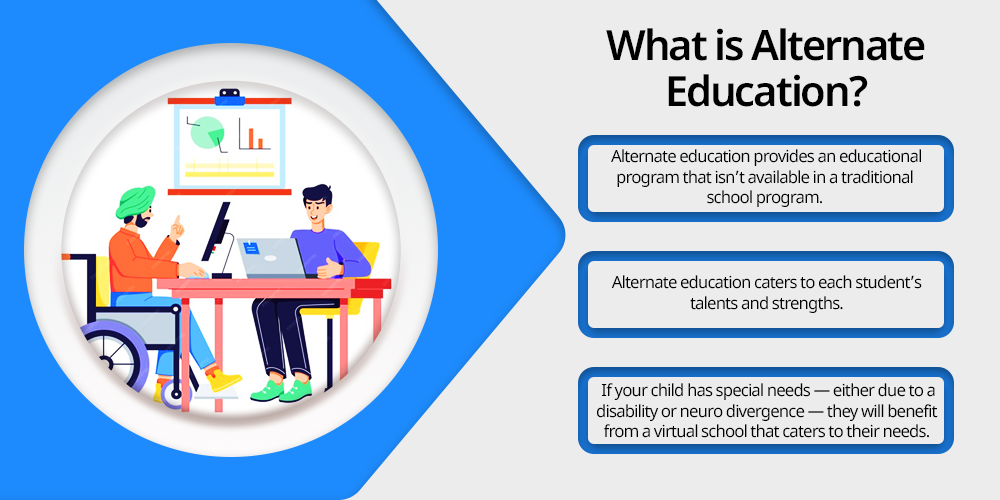
As the name suggests, alternate education provides an educational program that isn’t available in a traditional school program. This could be an online education system that focuses on catering to students’ learning and socio-emotional needs that are not being served in the traditional setup.
Let’s take an example. On the one hand, you have the choice to send your child to a school where they are told that they should value the curriculum above all else. This means that the one-size-fits-all lesson is what everyone learns. But your child shows a gift for a specific subsection, let’s assume, still life painting. Naturally, you might want your child to explore their skills further. Just because the curriculum does not have space to accommodate that, they will be deprived of a chance to hone their skills.
Similarly, if your child has special needs — either due to a disability or neuro divergence — they will benefit from a virtual school that caters to their needs better by providing them with accessible features.
Alternate education caters to each student’s talents and strengths. For the reasons mentioned above, including the soaring cost of private education, an increasing number of people are opting for alternate education.
What is “Alternative” about Alternative Education?
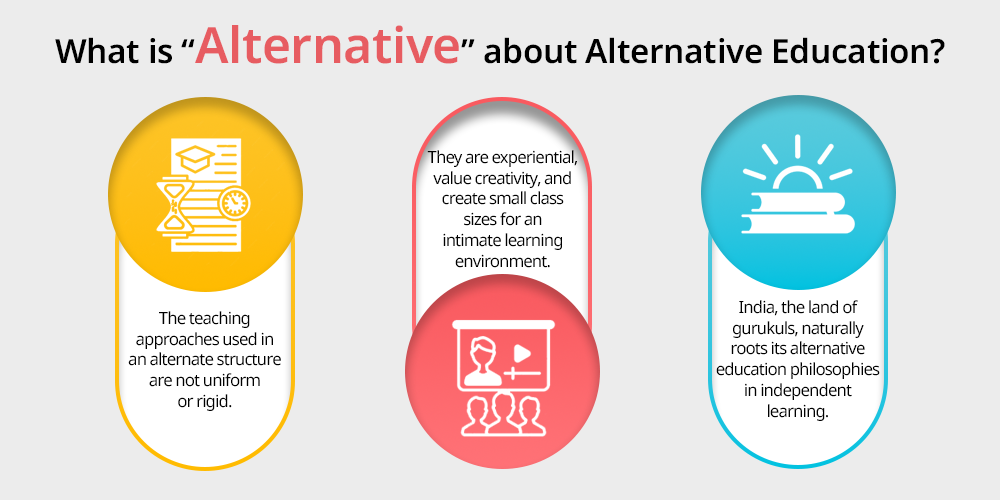
For various reasons discussed above, alternative education can be a blessing. The teaching approaches used in an alternate structure are not uniform or rigid; rather, they are experiential, value creativity, and create small class sizes for an intimate learning environment.
India has been the land of gurukuls, so it is no surprise that our alternative education philosophies are rooted in independent education. Some of the best homeschools follow such pedagogies, while some more structured schools like Montessori also aim at the same principles. Others you may have heard of include Rabindranath Tagore’s Shanti Niketan, Jiddu Krishnamurthy’s schools, Ashram schools, and so on.
Components of Alternative Education
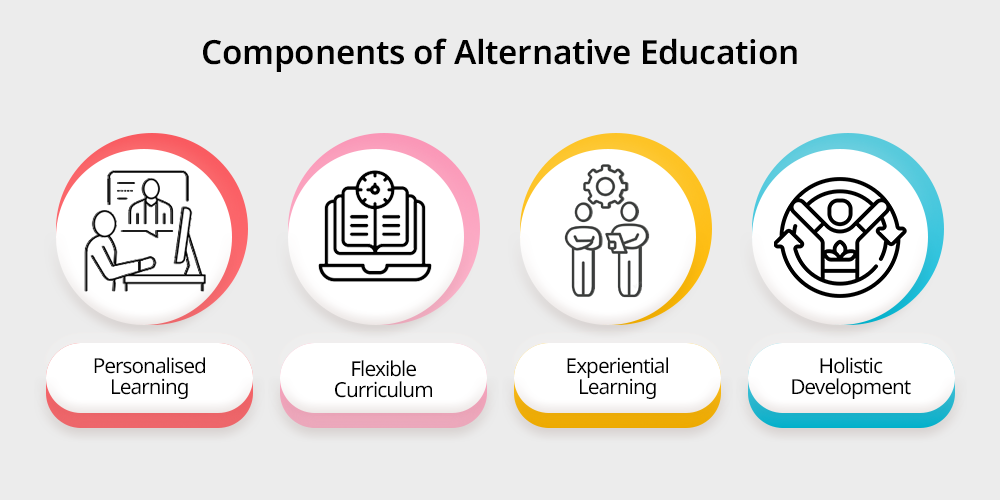
Personalised Learning:
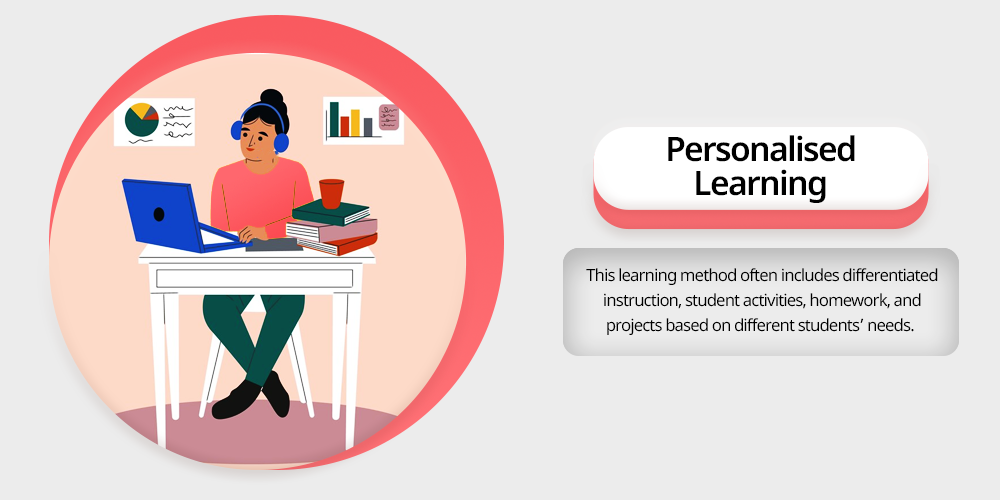
Alternative education addresses the need for personalised education as it understands that those enrolled are diverse in their abilities, challenges, and preferences. This learning method often includes differentiated instruction, student activities, homework, and projects based on different students’ needs. It helps them to learn at their own pace and explore what they are interested in.
Flexible Curriculum:
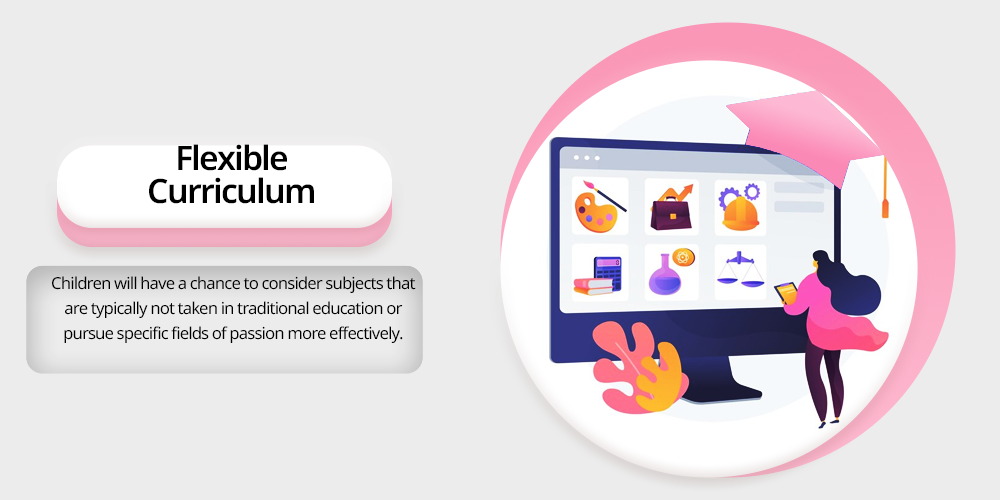
Whereas conventional programs in learning institutions have a set repertoire that cannot be altered on the other hand alternate education comes with flexibility in course content and structure. For instance, they will have a chance to consider subjects that are typically not taken in traditional education or pursue specific fields of passion more effectively.
Experiential Learning:
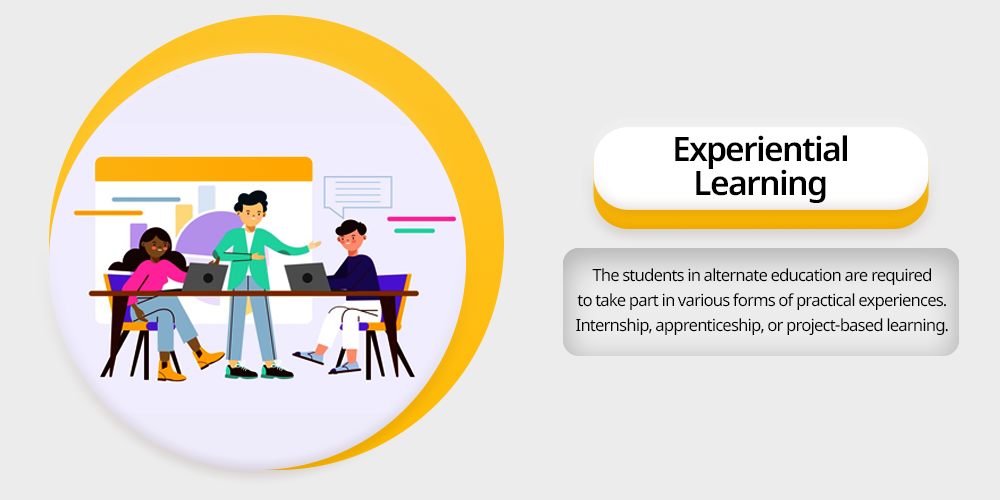
Usually, the students in alternate education are required to take part in various forms of practical experiences. Internship, apprenticeship, or project-based learning engages students in a given project and gives them a chance to learn beyond the classroom confines of a classroom.
Holistic Development:
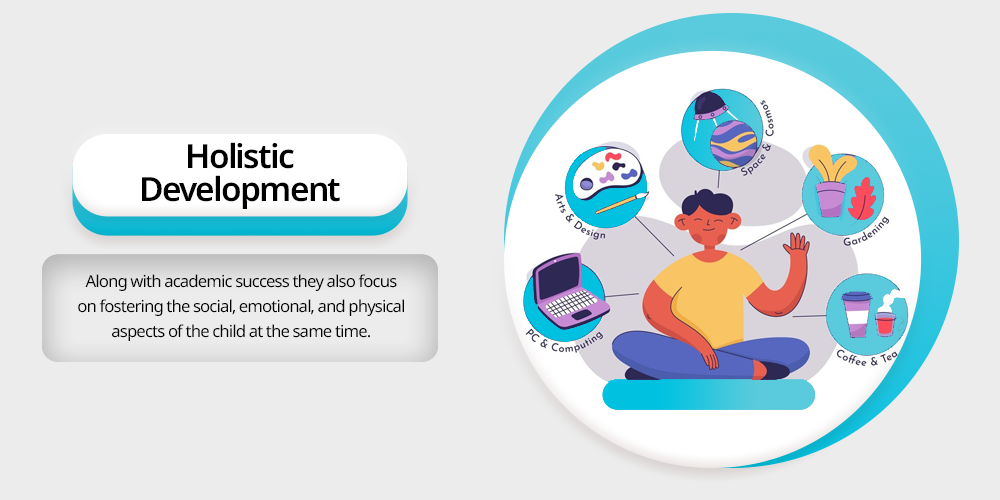
Alternative education focuses on the child as a whole person, and thus along with academic success they also focus on fostering the social, emotional, and physical aspects of the child at the same time. These practices include mindfulness practices, art, and structured physical activity to incorporate a healthy functioning of the body.
Goals of Alternative Education
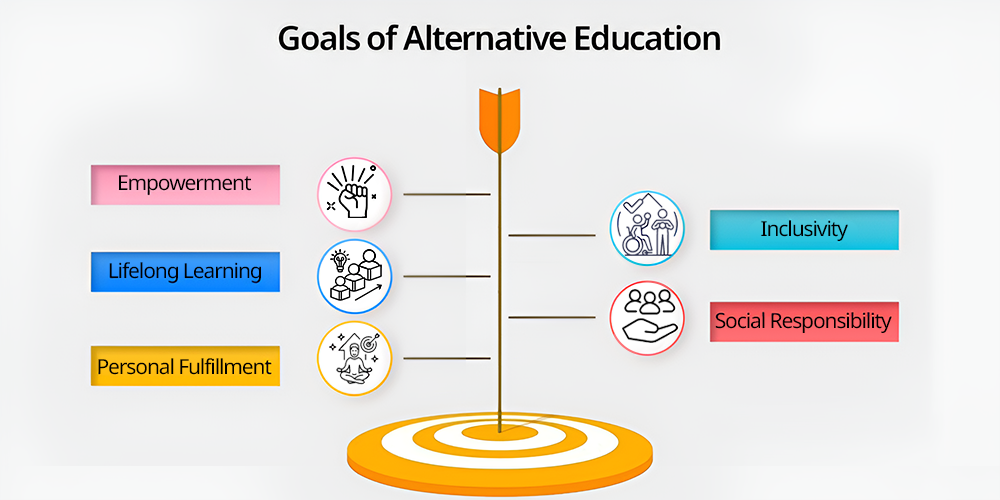
Empowerment:
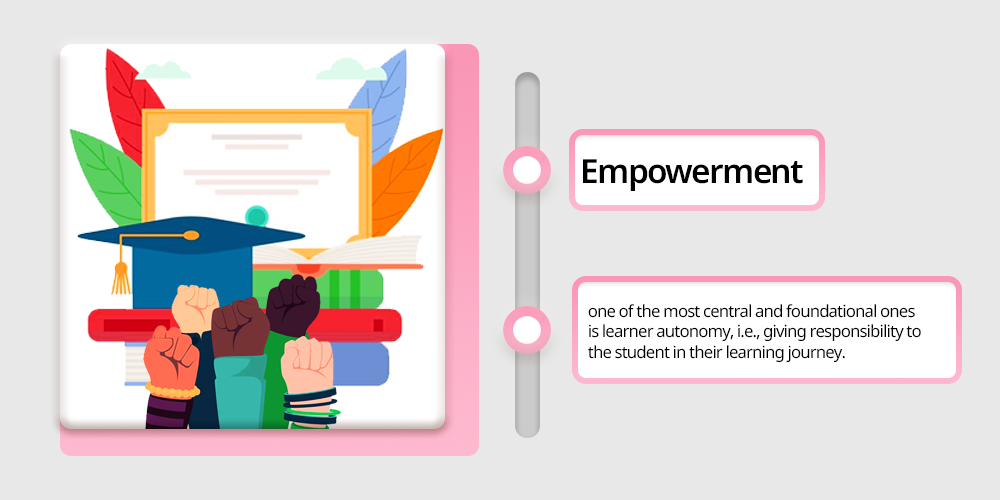
While one can list a number of objectives of alternate education, one of the most central and foundational ones is learner autonomy, i.e., giving responsibility to the student in their learning journey. Promoting autonomy, intelligence, and reflection assists a person in gaining the skills and confidence required for a life outside of education.
Inclusivity:
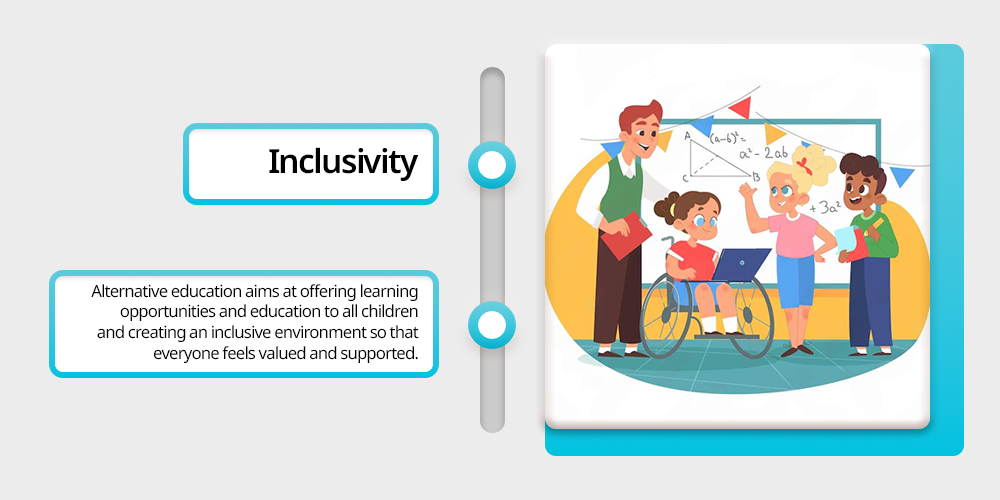
Alternative education aims at offering learning opportunities and education to all children and creating an inclusive environment so that everyone feels valued and supported. Alternate education embraces different learning styles so that it can bridge the gap in accessibility and make sure that all students regardless of what background or abilities they come with, will get the same opportunity.
Lifelong Learning:
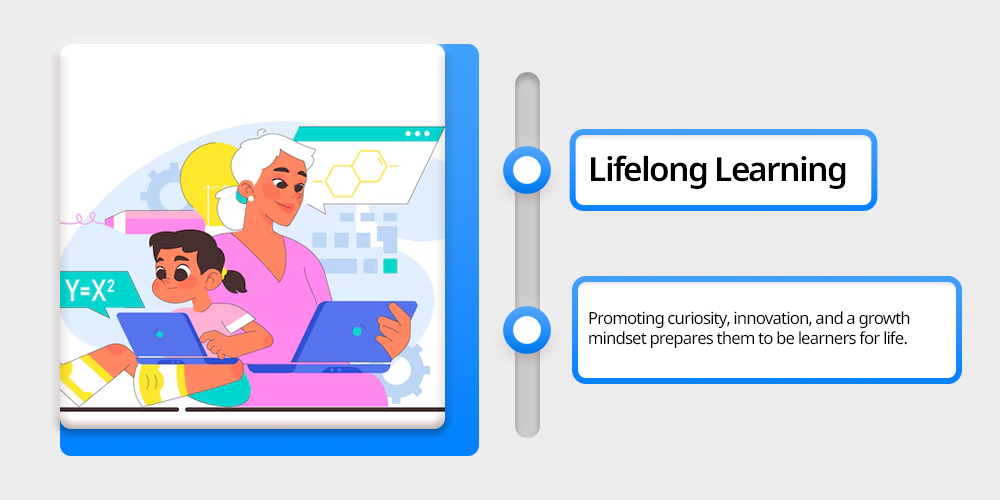
Not just academic achievements, students of alternate education develop a passion for learning that is not constrained by formal education standards and sanctions. Promoting curiosity, innovation, and a growth mindset prepares them to be learners for life as they develop a passion for acquiring knowledge beyond the classroom and it prepares them to face the harsh reality of the job market.
Social Responsibility:
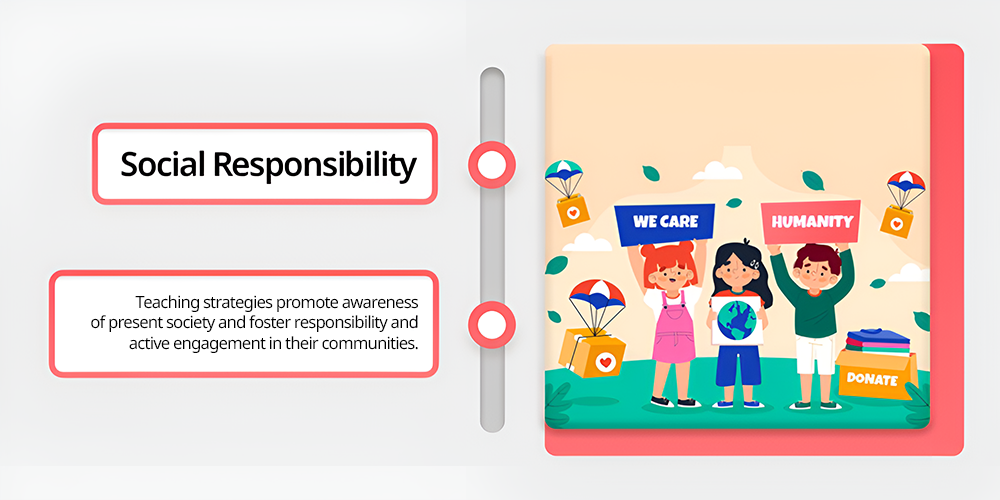
Teaching strategies promote awareness of present society and foster responsibility and active engagement in their communities. Including classroom service-learning projects and ethical discussions, serves to instill values of responsible citizenship and the desire in the students to contribute to society positively.
Personal Fulfillment:
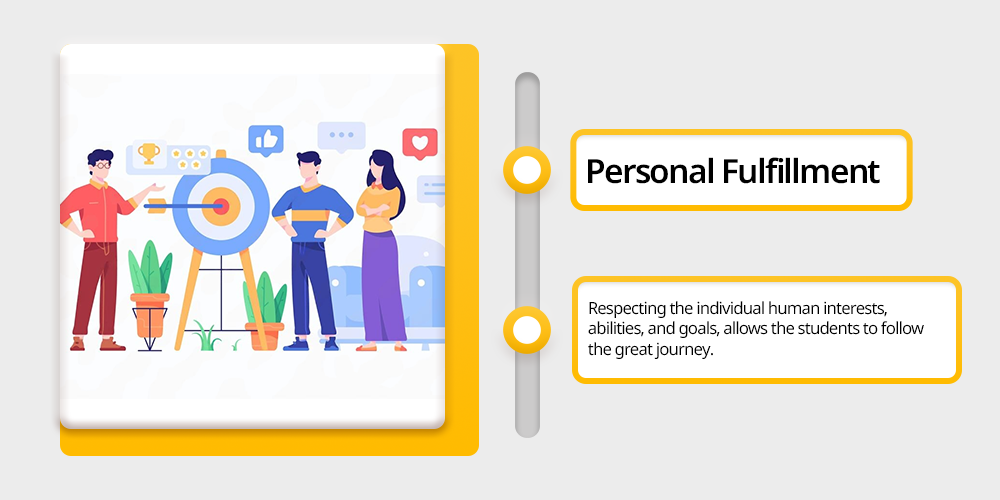
Finally, the last goal of alternative education is to facilitate personal purpose and fulfillment. Respecting the individual human interests, abilities, and goals, allows the students to follow the great journey based on their sense and purpose.
Benefits of Alternate Education
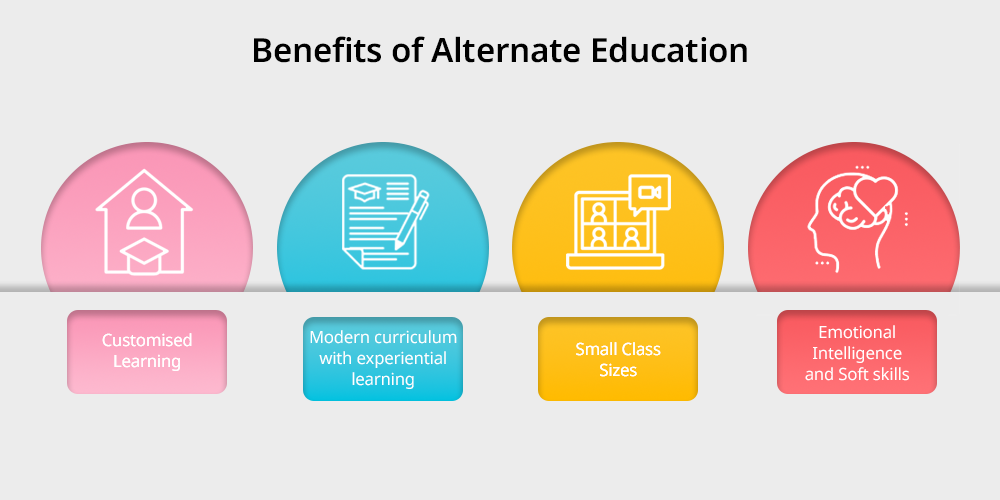
Alternate education offers concrete benefits of personalization and creative growth.
Customised Learning
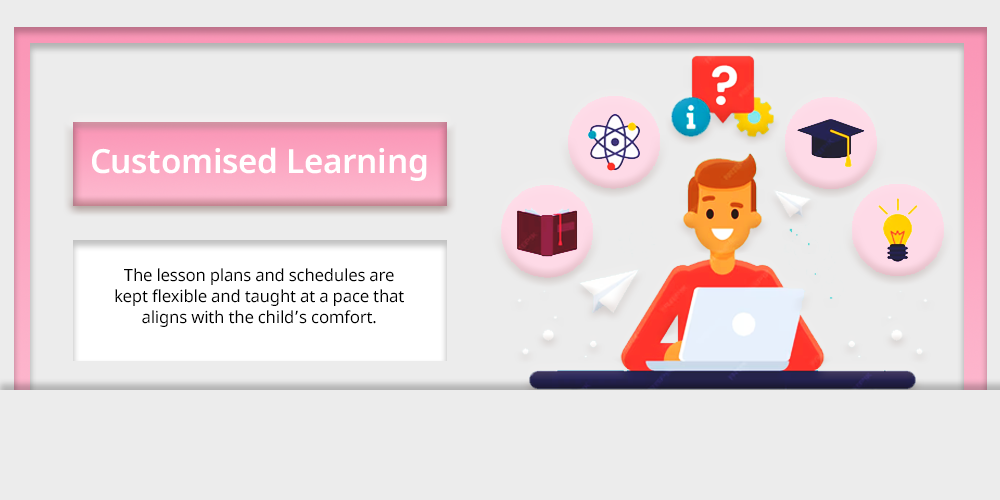
The biggest positive of alternative education systems is that they value the individuality and creativity of each child. The lesson plans and schedules are kept flexible and taught at a pace that aligns with the child’s comfort. Children are not assessed on complex examinations; instead, the focus is on their personal development and growth.
Modern curriculum with experiential learning
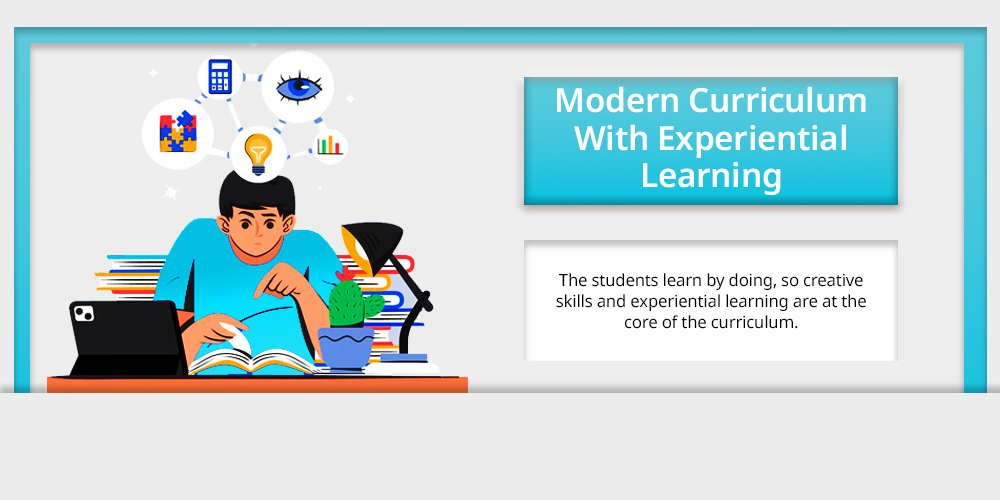
The curriculum in alternative education is a mix of traditional learning and modern online school curriculum. Moreover, the students learn by doing, so creative skills and experiential learning are at the core of the curriculum. This enables students to discover their talents and interests and pursue them further.
Small Class Sizes
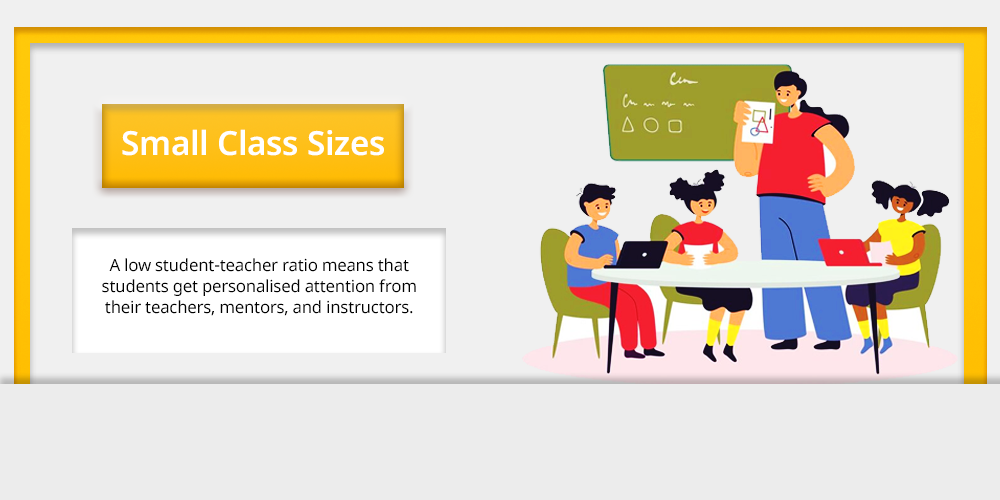
A low student-teacher ratio means that students get personalised attention from their teachers, mentors, and instructors. This creates a safe learning environment where students are not afraid of learning by making mistakes and, as a result, they flourish. This also helps foster community among the students, teachers, and parents.
Emotional Intelligence and Soft skills
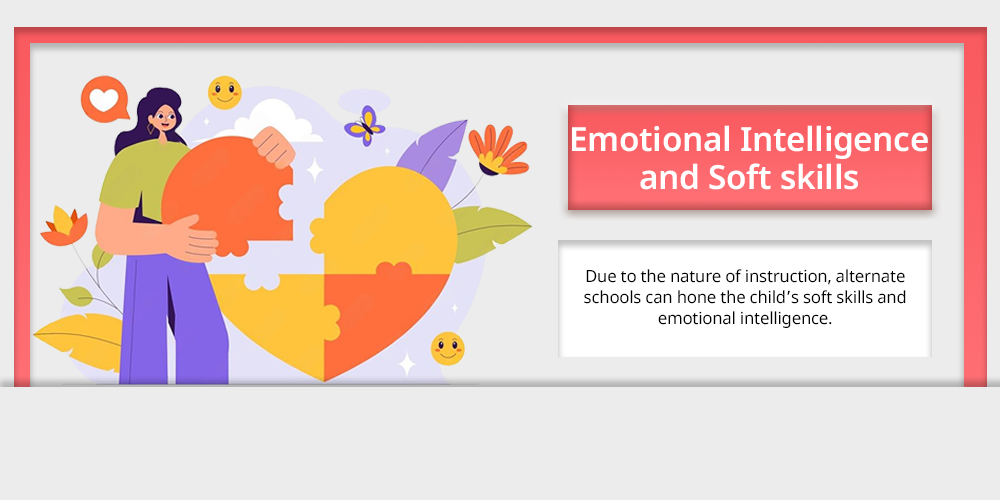
Due to the nature of instruction, alternate schools can hone the child’s soft skills and emotional intelligence. They grow up to become free-thinking, adaptable, and empathetic human beings who can communicate effectively.
Conclusion
Alternative education systems can certainly help children forge their paths by equipping them with all-important soft and hard skills. They make for a healthy learning environment, making them an increasingly preferred choice over expensive private school education. At 21K School, we do everything that we can to ensure that your child obtains the finest education and opportunities through some of the most effective means. We live in an era wherein our children require a more advanced and refined form of education, and it’s our responsibility to provide it to them.

